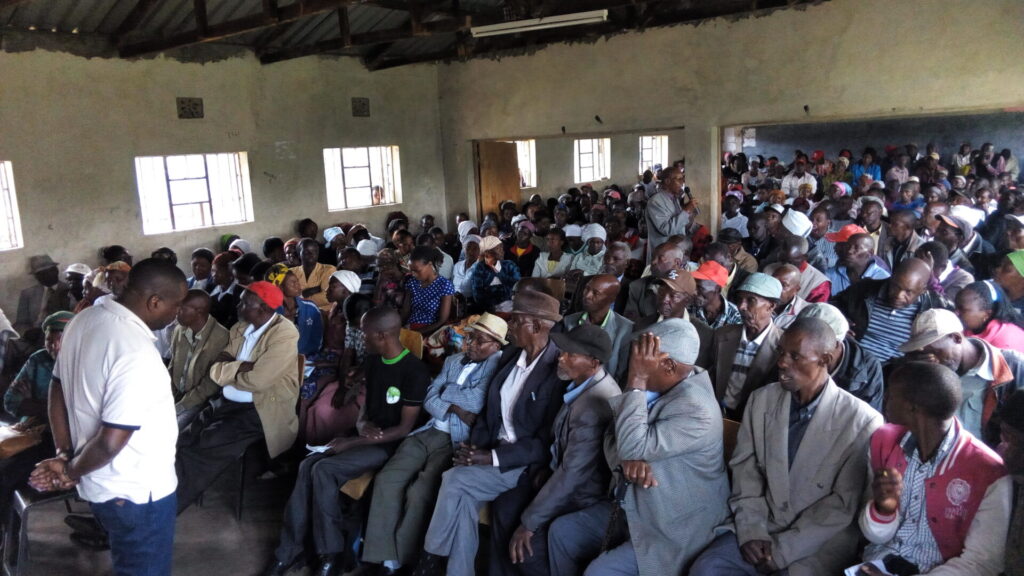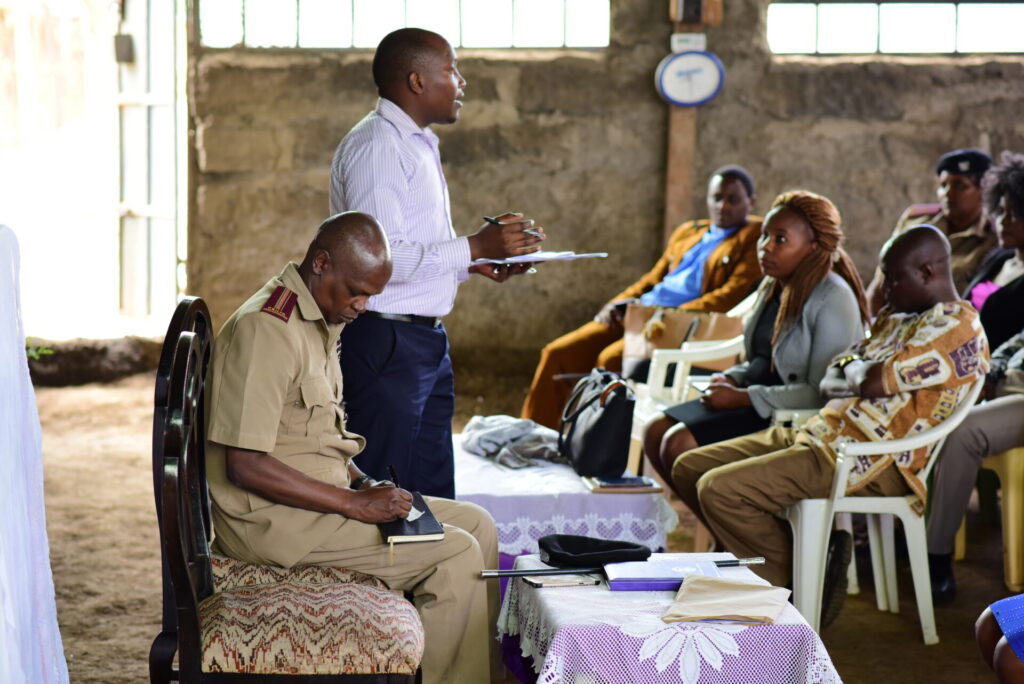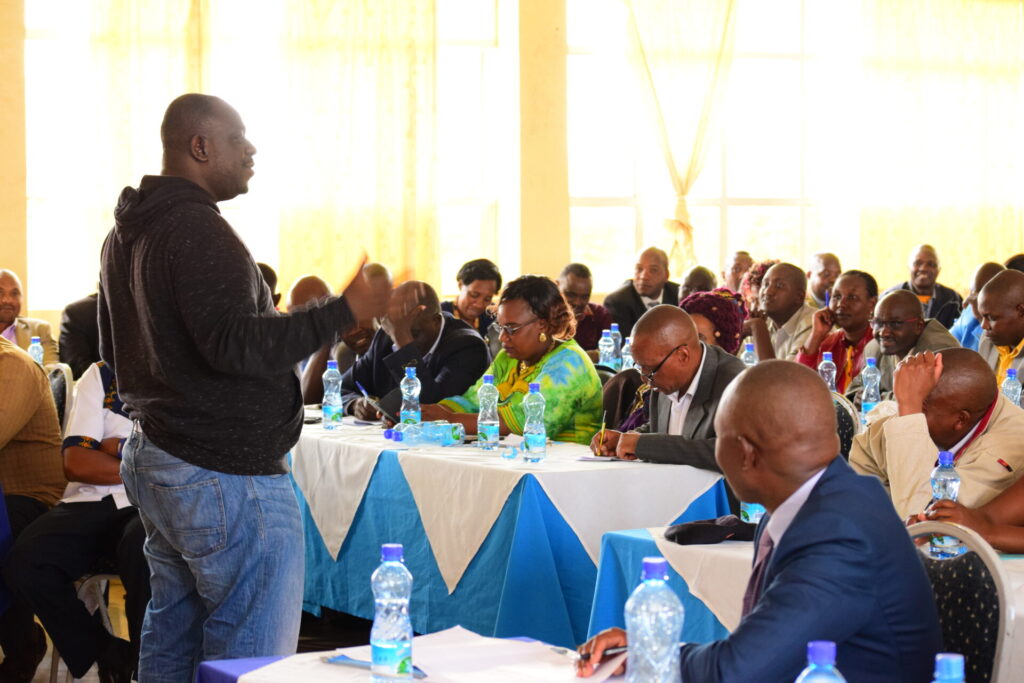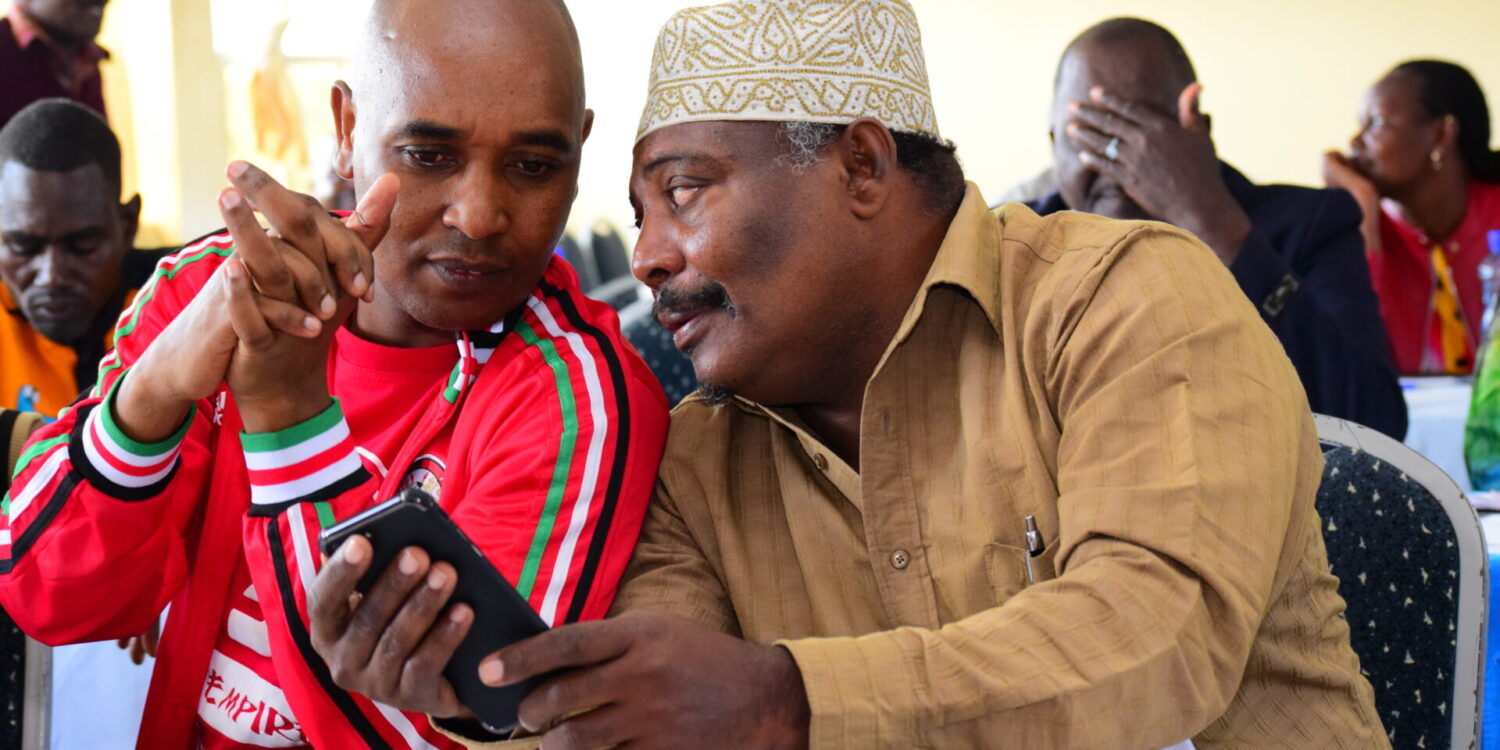In 2015, we did some work to try and see what citizens care about enough to act and be engaged with the government. We had a simple goal – to stimulate active citizenship and foster responsive government using data to aid communities to provide input into government activities. This project showed us that citizens cared more about local issues than regional or national ones because they felt they had the capacity to make a difference at the grassroots level. This insight laid the foundation for the Global Goals for Local Impact (GGLI) program, which aimed to achieve the Sustainable Development Goals through hyperlocal initiatives.

The GGLI program: Nakuru County, Bahati Location Training featuring Benjamin Charagu, Programmes & Operations Director at Open Institute.
The GGLI program offered firsthand experiences working with citizen data at the subnational level. The pilot project in Lanet-Umoja location, in collaboration with the late Chief Francis Kariuki, the famously known “tweeting chief,” showcased a simple yet effective process that worked:
1. Buy-In: The first step involved identifying common and priority issues within the community that could be addressed using data. This critical phase ensured that the community owned the process from the beginning.
2. Data Training: Once the issues were identified, the community underwent training to understand what data is and what it can achieve. This education was essential in preparing them for data collection and analysis.
3. Data Collection: The community took charge of collecting data. This hands-on approach instilled a sense of ownership and preparedness for future data-related activities.
4. Data Analysis: After data collection, the community delved into interpreting the data. This phase allowed them to prioritize issues and make decisions about what needed immediate attention, what could be addressed within the community, and what required government intervention.
5. Data Fair: The release of data and its analysis initiated conversations within the community. It not only identified priorities but also mapped out potential solutions, creating a sense of collective responsibility.
6. Advocacy: For issues requiring government intervention, the community used tools like memorandums to advocate for their concerns in an official manner.

The GGLI program: Nyumba kumi Leaders training Lanet Umoja.
Through the GGLI program, six significant lessons emerged, which continue to resonate today:
1. Citizens Have a Voice: When given the opportunity, citizens are willing to speak up and engage with their governments if they believe it can lead to positive change.
2. Data Matters When Relevant: Citizens care about data when it directly affects their daily lives and well-being. Data must be tailored to address their conveniences and livelihoods.
3. Ecosystem Approach: Open Data initiatives have the greatest impact when they take an ecosystem approach, involving various stakeholders in the process.
4. Customized Solutions: Communities are unique, and a one-size-fits-all approach to creating a demand-driven data ecosystem does not work. Tailoring initiatives to suit local needs is essential.
5. Collaboration Is Key: There is a significant opportunity for Civil Society Organizations (CSOs) and community media to strengthen collaborations, amplifying the impact of open data initiatives.
6. Sub-National Impact: Open Data can have a far greater impact at the sub-national level than at the national level, as it addresses local concerns more directly and effectively.

The GGLI program: Chiefs Forum in Nakuru County featuring Al Kags, Executive Director at Open institute.
The Global Goals for Local Impact program has shown us that the key to fostering active citizenship and responsive government lies in empowering communities to take control of their data, their priorities, and their futures. By focusing on local issues and involving citizens at the grassroots level, we can bring about real and sustainable change that extends far beyond the boundaries of a single community, echoing the sentiments of a true democracy – power to the people.
The GGLI programme has since evolved to encompass various initiatives both at the subnational and grassroots level:
- Our Open County programme, that seeks to promote open government at the grassroots. We believe that if governments are open and responsive to their citizens, citizens can receive services delivered at the level that they deserve. Under the Open County Programme, we establish data desks in counties as centralised systems for data management.
- The Data Leaders Fellowship Programme, geared toward County Chief Officers in the Economic Planning Departments, to build their capacity for managing data for improved decision making and resource allocation in their counties as well as better reporting.
- The Data Leaders Fellowship Programme for grassroots organizations, to help them identify and harness knowledge and resources to strengthen their advocacy using data and evidence.
As we mark the Global Goals Week 2023, we are cognisant that there is a need to accelerate action on the Sustainable Development Goals (SDGs). We continue to reiterate that active citizenship generally happens at local and hyperlocal levels, and urge governments, civil society, business, academia, and the UN system to make better use of citizen generated data that involves citizens’ voices in order to drive development.













